Remember that place before Uncle Ho passed away
On August 28, Prime Minister Nguyen Xuan Phuc met with comrades who directly served and protected Uncle Ho on the occasion of the 50th anniversary of implementing his will.
Here, the head of the delegation, Mr. Tran Viet Hoan, one of the guards who served Uncle Ho and later became the Director of the Uncle Ho Relic Site at the Presidential Palace (now retired), shared touching stories about Uncle Ho.
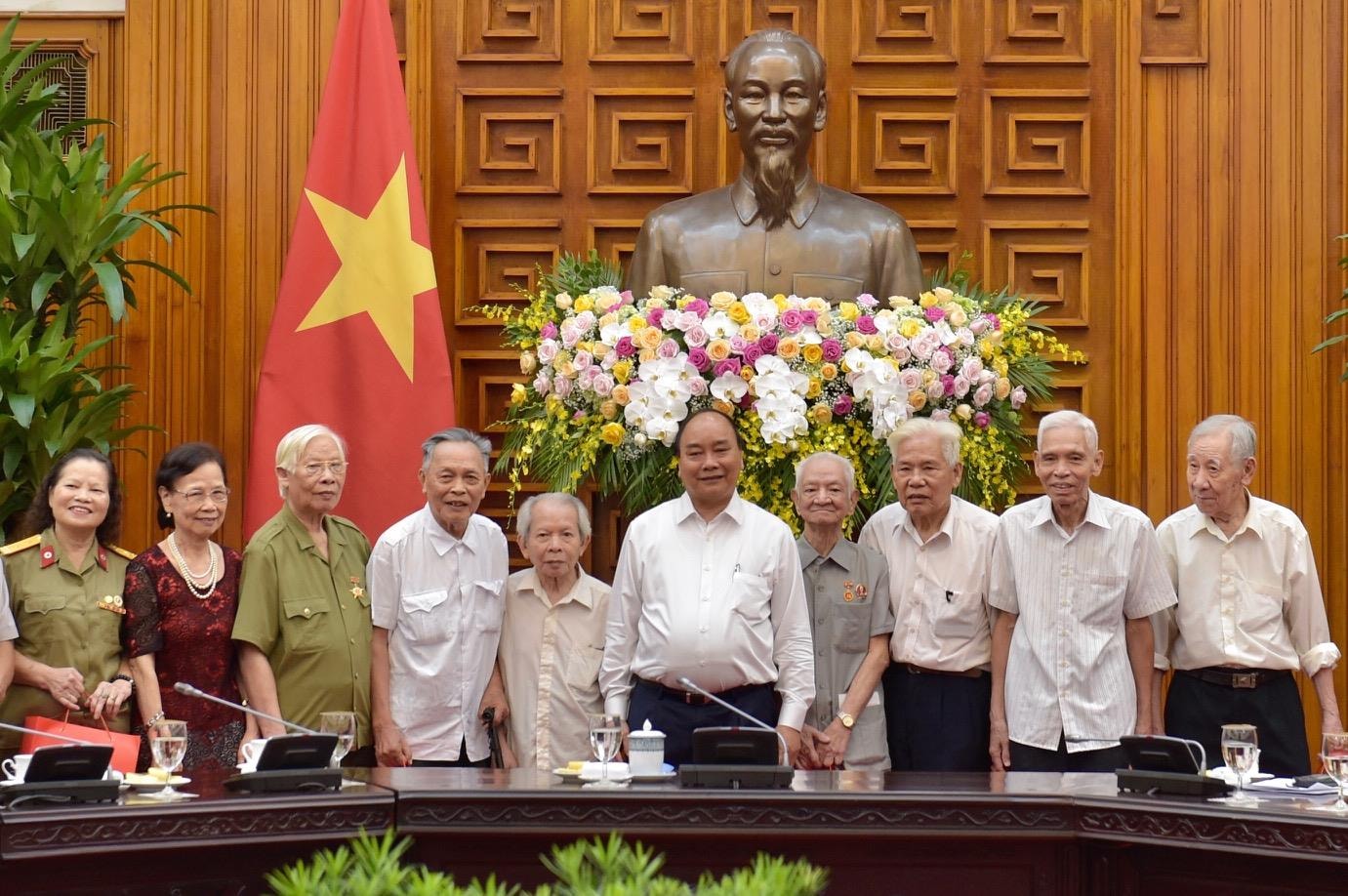 |
| Prime Minister Nguyen Xuan Phuc and his comrades directly serving and protecting Uncle Ho. (Mr. Tran Viet Hoan stands second on the right). Photo: VGP/Nhat Bac |
As the person who directly guarded and protected Uncle Ho during his illness and immediately after his passing, I was one of the police officers who stayed behind to continue looking after his legacy. Thanks to that, I have things to remember about the moments when Uncle Ho passed away, leaving behind so much love and longing for life:
Remembering 4 p.m. on August 12, 1969, Uncle Ho met comrade Le Duc Tho at the West Lake motel to listen to a report on the situation of the Paris Conference. That night, Uncle Ho had a fever and cough, and in the following days, he coughed more and his fever became worse. But he still went up and down the stilt house to try to work. At the doctor's request, on the evening of August 17, 1969, Uncle Ho did not work in the stilt house anymore. He went down to live and work in the small house behind the stilt house, the house that the Politburo had decided to build for him in May 1967 when he went to China for medical treatment, with the purpose of ensuring his safety during the years when American planes bombed Hanoi. But Uncle Ho did not accept to use it for himself. He said: When many comrades in charge come to work with me, we should hold meetings in that house to be sure. When I am alone, I just stay in this wooden stilt house. You guys take care of me, you also have to take care of the people. What the people can endure, Uncle Ho can endure.
And since July 20, 1967 (the day Uncle Ho returned from China), once a week the Politburo met regularly at that house to decide on major policies of the Party and the State. (Now in the heritage records of the Presidential Palace Relic Site, this house is called House 67).
On the occasion of the 39th anniversary of our Party (February 3, 1969), at this house, Uncle Ho wrote the article "Improving revolutionary morality, wiping out individualism", praising the exemplary spirit of sacrifice and pure morality of cadres and Party members, while strongly condemning narrow-minded individualistic behaviors and thoughts. He pointed out that individualism is the cause and companion of the disease of embezzlement, corruption, waste, extravagance, fame-seeking, profiteering... which harms the interests of the revolution and the people, and reduces the reputation and prestige of the ruling Party. Through his article, which was also the last article on morality before leaving this world, Uncle Ho did not forget to remind everyone how to be a human being; to improve dignity - a precious root to ensure that the journey in each person's life reaches a glorious destination.
And at this house, Uncle Ho left a bright moral example for us to learn and follow:
One time, a comrade in service read to Uncle Ho the news in the Hanoi Moi newspaper: Ngu Xa Cooperative intended to cast a bronze bust of Uncle Ho. Uncle Ho told the comrade in service: "You go and tell the Central Committee that when copper is scarce, you cannot do that. Use the money intended to cast Uncle Ho's statue to build an additional classroom for the children. There are so many heroes and martyrs, why not cast Uncle Ho's statue instead?"
Although Uncle Ho was seriously ill, that day he was very happy to hear a Politburo member report to him the Politburo's Resolution on commemorating four major holidays in 1970. And Uncle Ho said: "You guys should discuss carefully, as for my opinion, I only agree with 3/4 of the Resolution. I do not agree to make May 19 a major anniversary in 1970. As for the Resolution commemorating the 40th anniversary of the Party's founding, the 100th anniversary of the birth of VI Lenin, and the 25th anniversary of the founding of the country, you guys should have it soon to widely propagate it among the masses. Currently, students are about to enter a new school year, the paper, ink, and money used to propagate about Uncle Ho's birthday should be used to print textbooks and buy school supplies for them, so as not to waste it...".
Remembering the days of August 1969, it was raining heavily, the water level of the Red River was high, while Uncle Ho was sick, the Central Committee invited Uncle Ho to go to the ATK to prevent the Red River dike from breaking and causing floods. But Uncle Ho said: "I cannot abandon the people, first take care of the people". Therefore, the Central Committee prepared a water vehicle to take Uncle Ho to the ATK if Hanoi was flooded and behind Uncle Ho's car were many other water vehicles to rescue the people.
Even in the harsh moments of life, Uncle Ho still took care of his duties for the anniversary of the August Revolution and National Day on September 2, 1969: He sent a flower basket to the missile soldiers of Division 361 when he heard the report that Hanoi missile soldiers had shot down an American drone on August 30, 1969. On the evening of August 31, 1969, the National Day celebration was solemnly held at Ba Dinh Hall. Because of fatigue, Uncle Ho could not attend, but he asked about the organization of this celebration. He felt better and looked more alert. On September 1, 1969, Uncle Ho was very tired, but at times he was more alert and agile, personally holding and eating a bowl of longan. On the occasion of the 24th anniversary of the August Revolution and National Day on September 2, 1969, he sent a wreath to visit the martyrs at the Hanoi martyrs' cemetery; He also sent flower baskets to the Police Team of Area 4, Ba Dinh Ward and to the Road Traffic Safety Team I.
Remembering the days when Uncle Ho was sick, the hours of emergency treatment for Uncle Ho, the times when Uncle Ho woke up after each emergency treatment, Uncle Ho asked about everything, and the first thing he asked was: Has the Red River water level gone down yet? Where did the people of the South win today? We always remember Uncle Ho's words, words that showed that Uncle Ho was always proactive in all work, even proactive in his departure. Like on August 29, 1969, Uncle Ho told Prime Minister Pham Van Dong and his children and grandchildren around him: On the National Day holiday, Uncle Ho will attend for ten to fifteen minutes. Thinking back, it was strange: at 9:00 on September 2, 1969, Uncle Ho suffered a very serious heart attack and so Vietnamese and Chinese professors and doctors had to perform emergency treatment on him. According to the electrocardiogram machine, at 9:15, Uncle Ho's heart stopped beating completely. The youthful strength of the doctors and us bodyguards took turns pressing on Uncle Ho's chest, hoping that his heart would beat again. At 9:47 a.m., comrade Pham Van Dong burst into tears: "Comrades, our Uncle Ho is no longer alive."
So, at 9:47 a.m. on September 2, 1969, the pain of Uncle Ho's passing away was transmitted to humanity, leaving "life to shed tears" and "heaven to pour rain". September 2 was truly a hope left to future generations, a hope because there was nothing special for Uncle Ho: on September 2, 1945, Uncle Ho saved the nation from suffering, brought independence, freedom, and happiness to everyone, and then 24 years later, Uncle Ho passed away. And how sacred is the number 9: at 9:00 a.m. on May 10, 1965, Uncle Ho wrote the first lines of his Will, leaving instructions for future generations; at 9:00 a.m. on May 10 in the following years, Uncle Ho reviewed, corrected, and added and removed necessary things; at 9:00 a.m. on May 10, 1969, Uncle Ho completely completed the instructions for future generations. And at 9:00 a.m. on May 19, 1969, Uncle Ho reviewed for the last time the things he "left behind with endless love" for his children and grandchildren - Then at 9:47 a.m. on September 2, 1969, Uncle Ho passed away, at the age of 79. On September 9, 1969, the whole nation held a memorial service to send him off to the world of the wise.
Remembering the people's love for Uncle Ho during his "sickness-death" days according to the law of his life: During the 15 years that Uncle Ho lived and worked in the Presidential Palace area, not once did any people come to Uncle Ho's house to bother him. During the days when Uncle Ho was sick, although his health was kept very secret, there were many vehicles coming in and out every day, bringing Central comrades to visit Uncle Ho, bringing doctors to treat Uncle Ho, bringing medical equipment to treat Uncle Ho..., so people predicted that Uncle Ho might be sick. Therefore, many people came to the red gate (the entrance to the Presidential Palace, Uncle Ho often went through this gate every day), expressing a wish: "If Uncle Ho is really sick, we would like to donate our hearts to replace Uncle Ho's heart". Then from September 3 to 6, 1969, the crowd was never absent, everyone was in tears, sad, silently and orderly walking in the rain to Ba Dinh stage to visit Uncle Ho's picture.
And during the days when Uncle Ho's body lay in a glass coffin at Ba Dinh Hall (from September 6 to September 9, 1969), so that our compatriots, cadres, soldiers and Vietnamese friends could come to visit Uncle Ho, the feelings of the young children were extremely heartbroken: Because there were so many people coming to visit, they could not visit Uncle Ho, so they kept struggling with the police officers on duty to protect him outside the hall, crying bitterly: Uncles, please give us Uncle Ho...
I always remember Uncle Ho's heavy heart for the land that he said: "My hometown is Nam Dan - Nghe An, but my mother died in Hue, my father died in Cao Lanh. My hometown stretches across the country. In places like Hue, Phan Thiet, Saigon..., before going abroad, I used to live and have been there, but have not yet returned", the place that Uncle Ho missed so much: "In the South, each person, each family has their own suffering. Combining the personal suffering of each person, each family, it becomes my suffering. I know that I have not fulfilled my revolutionary duty towards the people of the South. Even so, I know that the people of the South still love me as I have always loved them. In the South, I am not President Ho Chi Minh but Uncle Ho". Therefore, when he fell ill, he asked for some coconut water to drink. As if understanding Uncle Ho's feelings, Uncle Ho's personal secretary - Comrade Vu Ky told us security guards to go to the two coconut trees in front of the stilt house, which were the two coconut trees of the Southern variety that Uncle Ho tended every day, to take one fruit from each tree, split it open, mix the juice from the two fruits into a cup, and separate a piece of coconut pulp from each fruit, put it on a plate, and bring it up for Uncle Ho to eat. Uncle Ho sipped some coconut water to consider it as taking with him into the eternal world "Missing the South, missing home"...
In memory of the day Uncle Ho passed away, I hope that the above recollections of mine will contribute a small part of myself to today and the future to cherish, preserve and promote the value of Uncle Ho's heritage to last forever with the nation./.

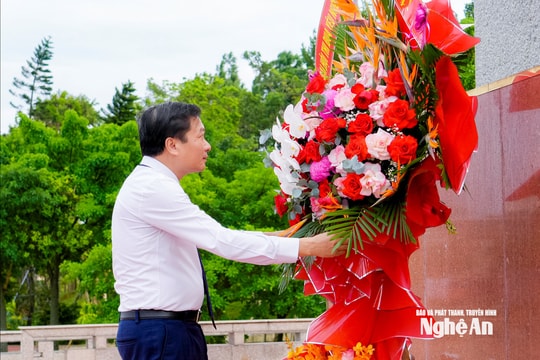
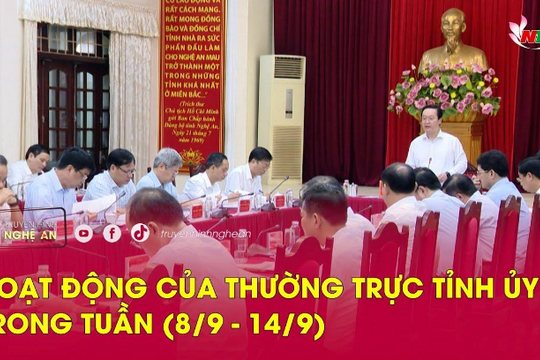
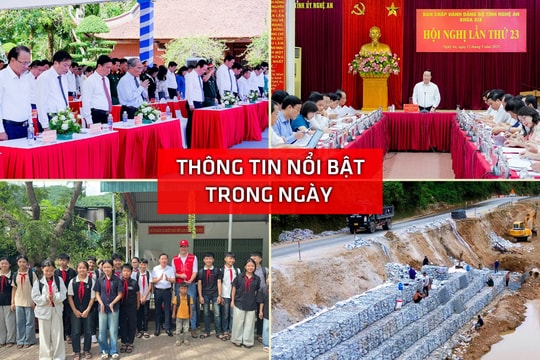
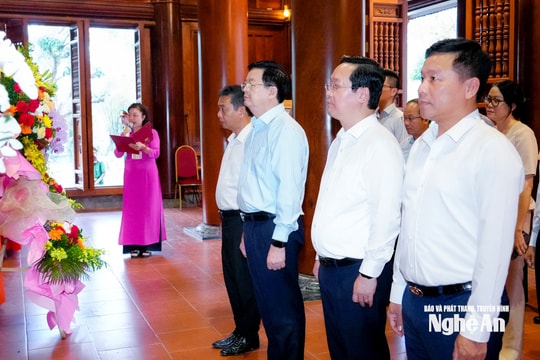
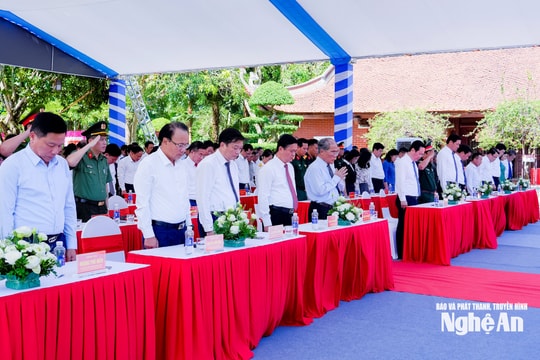
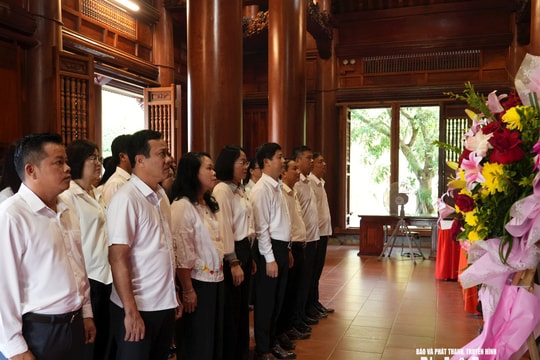
.jpg)
